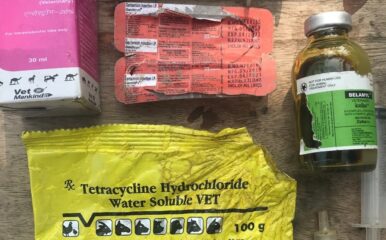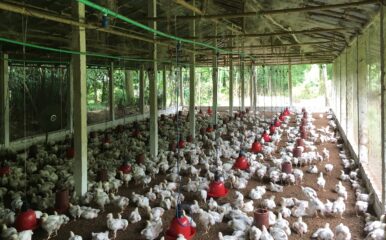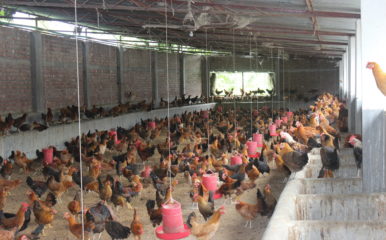
Has COVID-19 improved the prospects of One Health in India?
Published on 02/03/2023
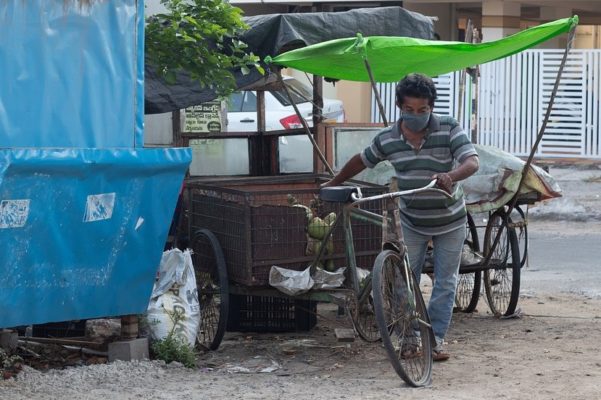
Raam Gottimukkala/pixabay
The India Roadmap Series II comprised two webinars and a high-level roundtable in an initiative which sought to understand sectoral needs in India that require addressing by generating evidence through research. The key issues identified in the two webinars helped shaping the agenda of the high-level roundtable meeting, appropriately held on National Science Day in India.
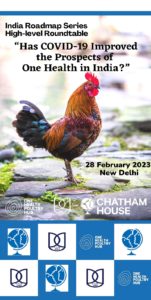 The roundtable – a lengthy two and a half hour meeting – brought together 14 participants, nine actually around the table and five online, along with Hub partners and team members.
The roundtable – a lengthy two and a half hour meeting – brought together 14 participants, nine actually around the table and five online, along with Hub partners and team members.
There was representation from key government agencies, including the National Health Systems Resource Centre, Ministry of Environment, Forests and Climate Change, Department of Biotechnology, Office of the Principal Scientific Advisor, Indian Council of Agricultural Research and Indian Council of Medical Research. There was also representation from country offices of United Nations agencies, including the UN Development Programme and World Health Organization, and academics from Christian Medical College – Vellore, Jawaharlal Nehru University and Centre for Science and Environment.
The participants agreed that despite the health, economic and societal impacts of recent disease outbreaks such as SARS, avian influenza and Ebola, as well as the COVID-19 pandemic, national policies in India remain more focused on responding to outbreaks as they emerge rather than on a holistic, One Health approach which seeks to conceptualise the synergistic and antagonistic effects of disease outbreaks and mitigation efforts on the human, animal and environment health domains.
There was also consensus around an understanding that the current focus on zoonotic pathogens emphasises the control, management and eradication of infection at the animal-human interface and is reductionist by its very nature. The One Health approach, as understood and increasingly practised today, is not just applicable to ‘traditional’ problems such as zoonotic outbreaks, pandemic preparedness and antimicrobial resistance (AMR) – though these are very much the subject matter of the One Health Poultry Hub – but it is also applicable to diverse infections such as tuberculosis (TB) and vector-borne diseases, chronic conditions such as mental health, and drinking water quality.
Discussion focused around three key areas:
1. COVID-19 and One Health.
This considered the framing of the pandemic experience for One Health and lessons drawn across sectors and disciplines. Participants shared their views on framing One Health beyond the lab, disease spillover and pandemic preparedness to bring in the social sciences and develop an inclusive approach where equity can be ensured across sectors and disciplines. This further inspired participants to deliberate upon evolving discourses around One Health which have shaped human and non-human health governance systems in India. They shared views on the existing analytical capacity within organisations and departments, which is essential for bridging the evidence and policy gap, and also discussed their recent efforts to create that analytical capability at individual, organisational and systemic levels.
2. The needs and priorities of different partners to foster multisectoral collaboration for One Health.
In the second part of the roundtable, participants shared their views on sectoral silos and the possibility of bridging gaps through strong leadership and different initiatives. Participants representing different disciplines and sectors discussed the evidence generated through social sciences research and how it could complement findings from natural sciences to develop a synergistic and inclusive One Health framework for India. The role of research organisations, universities and non-governmental organisations in generating evidence for making current governance structure more inclusive was also considered.
3. Identification of realistic action.
The last part of the conversation focused on the need for sharing One Health imperatives across ministries and departments, as well as context and needs-based specific communication for One Health policy developed considering the diversity of stakeholders. Participants shared their views on the emerging governance structure for One Health and the role of different ministries and departments.
Finally, the roundtable participants considered next steps for the strengthening of a One Health framework in India which could cater for sectoral needs in a harmonious way. How can the operational challenges be mitigated in a diverse political setting and with competing sectoral needs?
That there may be a case for developing One Health as a ‘system’, paying attention to systems thinking that can take into account a realistic range of influences on outcomes in complex contexts and think beyond the conventional building block of health system strengthening, was discussed. It was recognised that India does have enough capacity to address a complex problem such as One Health and that sufficient government commitment exists. However, enablers and barriers must both be recognised as India embarks on this journey.
- Roadmap II in India took place between December 2022 and February 2023. The events were co-hosted by Jawaharlal Nehru University, New Delhi, and Chatham House, London.

